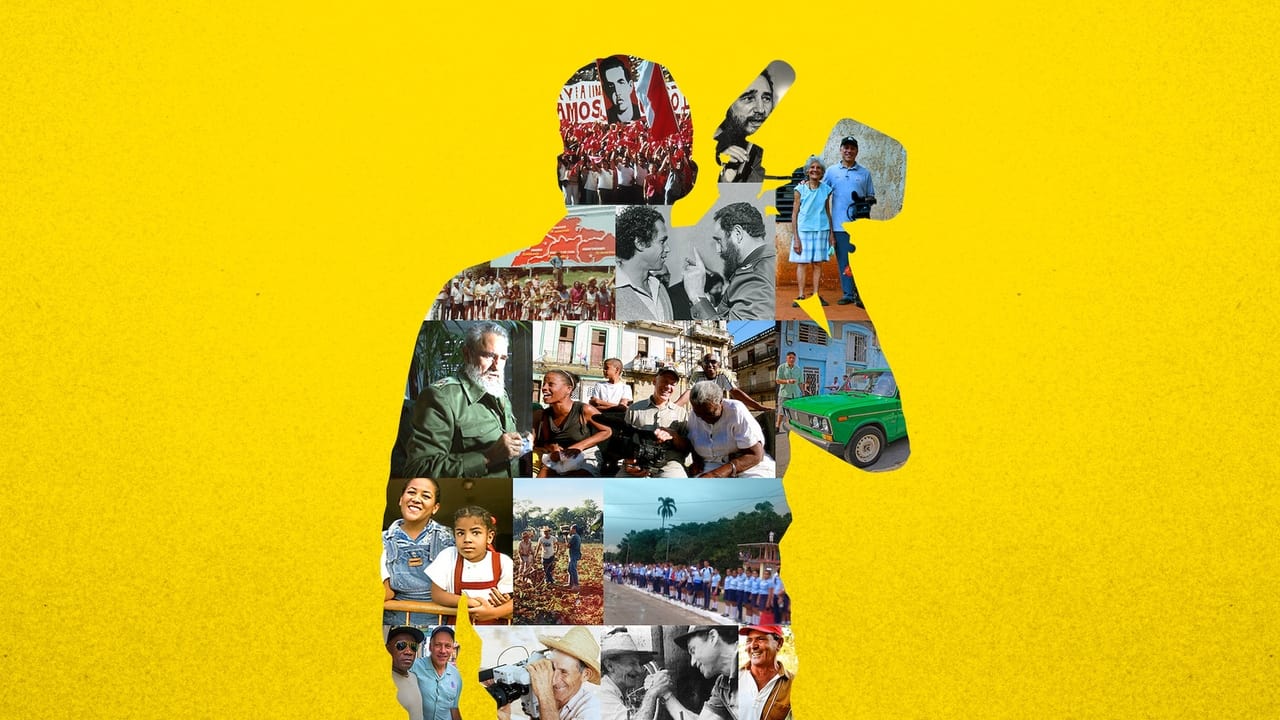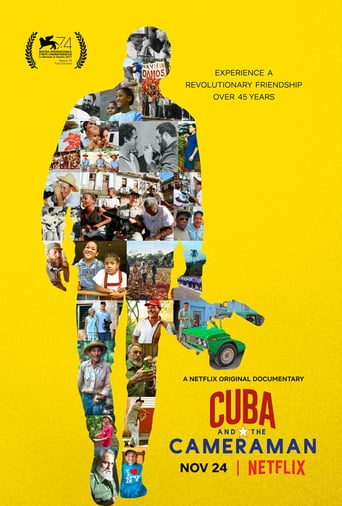Protraph
Lack of good storyline.
Pluskylang
Great Film overall
Stellead
Don't listen to the Hype. It's awful
Kirandeep Yoder
The joyful confection is coated in a sparkly gloss, bright enough to gleam from the darkest, most cynical corners.
cynophile
Wonderful film showing the real Cuba as opposed to the usual U.S. anti-Castro propaganda. This was the first time I'd had the chance to see inside Cuba and to hear how appreciative ordinary Cubans were for what the Revolution had brought: free health care (including a low infant mortality rate), affordible (if basic) housing for all, and an effective educational system which gives Cubans the highest literacy rate in that part of the world - going to show how a courageous and hard working people find ways of working around sanctions designed to cripple their country.
MsLSimon
This is a sorry excuse of a documentary that completely covers up the horrible atrocities committed against the Cuban people by the Castros. It tries to act like it's being unbiased but it constantly portrays Fidel Castro as a very nice and misunderstood leader who is a victim of the U.S. embargo. The filmmaker gives him presents? Disgusting! I don't think anyone would have approved of a documentary of Hitler walking around being a likable guy, but somehow it is okay to do it with Fidel Castro even though he's also a mass murderer.I lived in Cuba in the 70s and the food rations and blackouts that are only shown here during the 90s already existed. While he shows briefly the attacks on the people trying to leave to the U.S. in 1980, he doesn't show anything about the people who are sent to jail simply for being critical of the government. There's mention of the free healthcare, but no mention of the fact that there are no medicines available since the 70s not just the 90s. And while Castro always blamed the embargo for the shortage of food and medicine, he continued becoming richer and richer off of the exported goods through cheap labor. He owned property all over and lived in the lap of luxury while his people starved. Where does this show children being forced to cut sugar cane for free during the summers since 7th grade? Where does this show men and women being forced to serve in the military? Where is the mention of the rampant prostitution of women and children, because that is the only way that people can make dollars and euros to be able to feed their families? Where is the interview of Cubans in the U.S. who can speak freely about the atrocities committed in Cuba? Do you really believe that millions of people have fled the island purely because of economic reasons? You interviewed people who could not speak freely and record that as news?Mr. Alpert, you are no journalist. You have created nothing here but Cuban government propaganda and you should be ashamed of yourself. You are a sorry excuse of a human.
a761506-192-71938
The life work of Jon Alpert is beautifully displayed along with an intimate look into Cuba over the years. The simpleness of the farmers lives, happy every day of their lives until the day their first animal was stolen, and then to see their recovery at such a late stage in life after things looked incredibly bleak... one of the best raw images of humanity in its purest form.The interviews with Fidel showed me who he was in a nutshell, and to be honest, I knew little about him prior to this, but it allowed me to paint my own picture of the man.Truly tremendous film, Jon if you read this review, thank you very much for making this.
sengbranch
I enjoyed watching this film so much, chatting away to my wife about all the familiar places and stories. My work has taken me there a lot over the years. The stories portrayed here are exactly what one sees when you develop friendships over the years in Cuba. I felt as if the three brothers were my friends too, having spent much of my time in the farming communities of Cuba. I felt emotionally attached to them as time passed and economic pressures shaped their experience. There is so much depth and complexity to the Cuban story, and it can be incredibly confusing to go between the worlds of tourism, government lectures, and time in the homes or fields of Cubans. Add to that the sentiments of exiles and one can struggle to navigate these waters and formulate clear opinions. One is constantly meeting people in unexpected positions with extraordinary education. Ag engineers and entomologists breeding beneficial insects for organic farms in old soda bottles under palapa huts, PhD of Latin American literature checking you into your hotel, or a university professor selling peanuts on the street to make ends meet. This film also captures that phenomenon. What is not confusing, is connecting with Cubans. This filmmaker does an excellent job of connecting the viewer with the experience of Cuban people for them to develop their own opinions based on these stories, history, geopolitics, etc. I was overly excited to provide my own supplementary narrative, translations, etc to my patient wife who has never visited the island. The footage is unique, following various people over many years. It's the first film of its kind filmed in Cuba that I'm aware of. My wife winced at some of the questions directed towards people in times of intense struggle, belaboring the narrative a bit at what was obviously a difficult situation. The people would have enjoyed telling their story though, and what a great body of unique work it has produced as a result of this filmmakers diligence.

